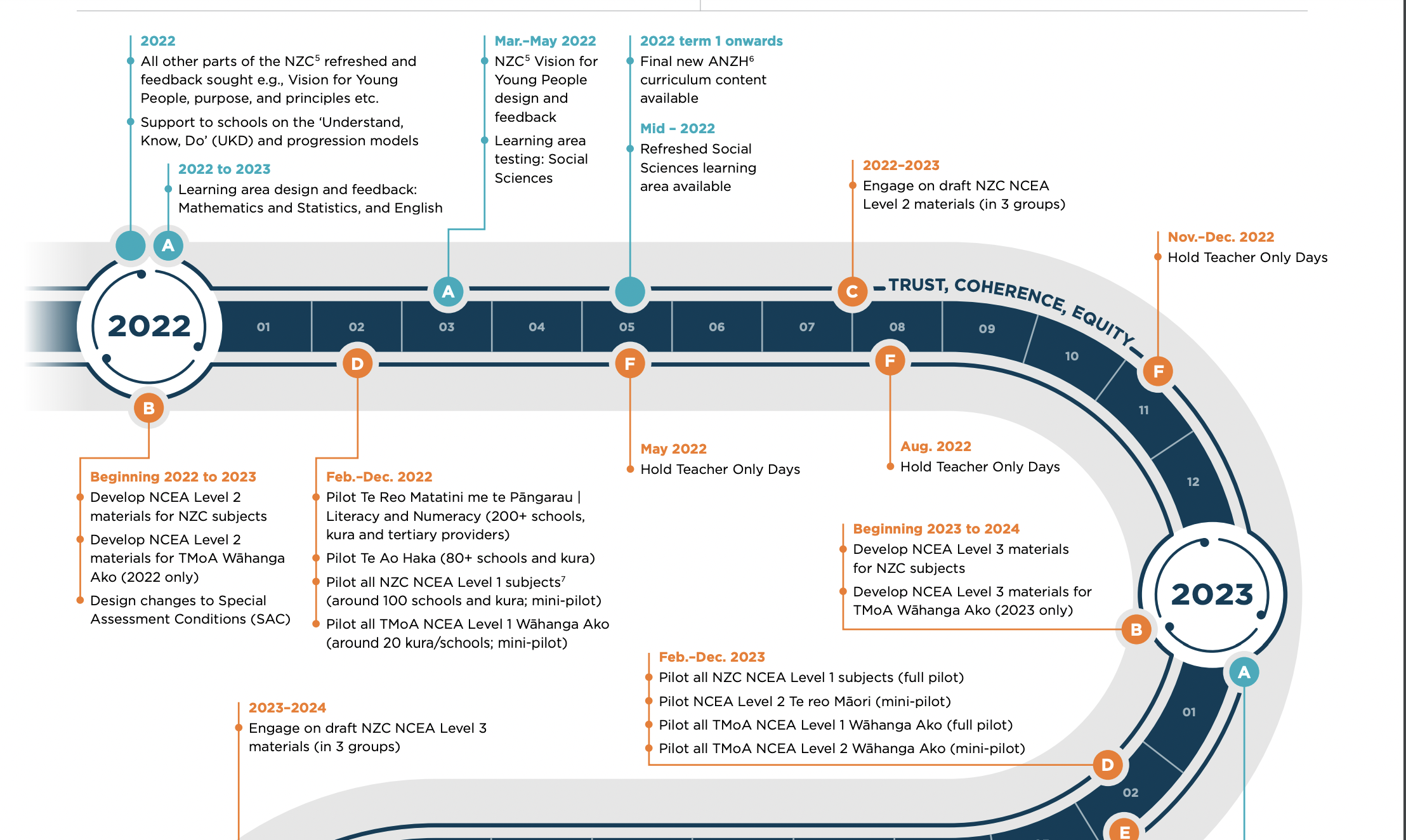10 October - 16 October
Section outline
-
Kia ora tātou,
This term is going to focus on preparing you for the Aotearoa Histories Curriculum [see belowtimeline].
So,

Given that you will likely be following this pathway as a course of study it is important to understand the contextual differences that emerge in our historiography in Aotearoa-New Zealand and the ethical considerations this raises for you as both learners and researchers.
Firstly, considering the increasing importance of Te Tiriti o Waitangi in the research space [for an example of this: http://www.rauikamangai.co.nz/wp-content/uploads/2022/06/Wai262-Report-Rauika-Ma%CC%84ngai.pdf ] And, in addition considering the context of learning you are in currently, possibly the best use of our time would be to explore some commonly studied 'histories' in NZ and introducing you to a te ao Māori reading of those entanglements.
My reasons for this are as follows:
1. To become a successful research scholar in NZ it is critical to understand social/historical issues from a bicultural lens.
2. There is a lack of general understanding about Māori views on the conflicts in our history.
3. As a educator in this area I have the added features of both being a descendant of people on both sides of some of these conflicts; and, I am also a direct descendant of a Treaty signatory. Therefore, I have both the education and whakapapa necessary to provide you with a 'Māori' viewpoint of some of our nations histories.
Success Criteria:
To understand the key distinctions between how some/many Māori have viewed conflicts and how these conflicts have traditionally been defined in purely Pākehā terms

Inquiries:
- The Waikato invasion - the deception at Rangiriri
- The Wairau Affray - Te Rauparaha - the great chief of Ngāti Toarangatira
Further Learning:
